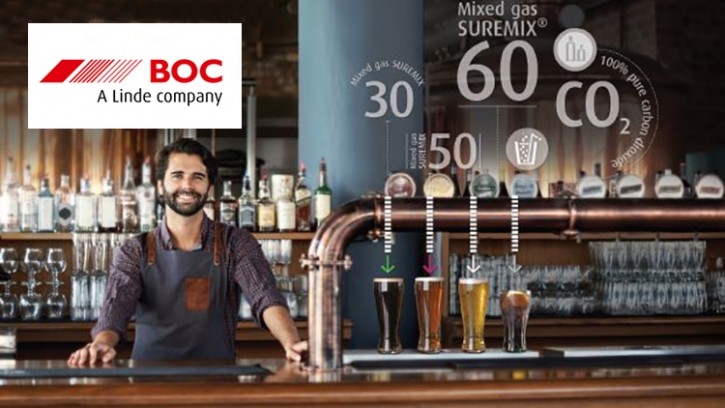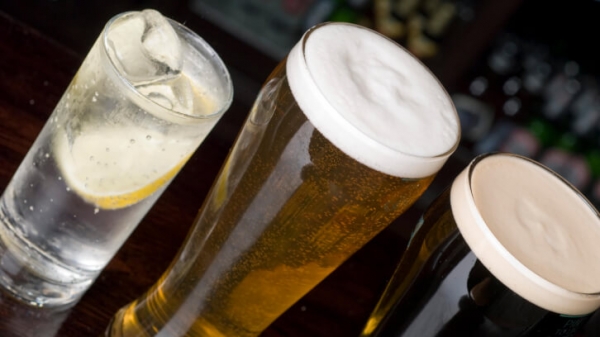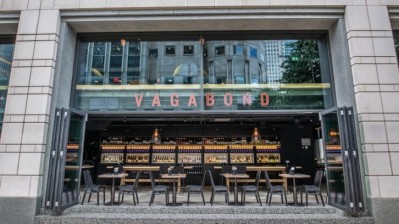PROMOTIONAL CONTENT
Let’s get fizzical

Remember the carbon dioxide shortages of recent years? Suddenly everyone from manufacturers to customers began to appreciate the importance of dispense gases. Yet they’re still overlooked as a factor in the perfect pour. I’ve seen very few training courses that talk about gas.
Dispense gases put the fizz in a pint of beer, cider or soft drinks like Coca-Cola and are essential for serving drinks the way the brands intended. This benefits licensees as well. With the correct food-grade gas and the right mixture, bar staff will pull a great pint and customers will order another. Get the mix wrong, or use poor quality gas, and drinkers will feel as flat about your pub or club as they do about your beer. They may not come back.
That’s the last thing a cost-conscious landlord wants to happen as margins continue to be squeezed by increased costs, competition from other leisure activities, more consumption of alcohol in the home, and other pressures such as cost of living increases and the changing ‘going-out’ landscape since the pandemic.
Improving the quality of beer, along with food and the pub environment, is one way of reducing the impact of challenges facing the licensed trade. If you train your bar managers and staff in the correct (and safe) use of food-grade dispense gases from BOC, you can ramp up quality and increase cost savings.
It’s not just dirt that hurts
When you teach bar staff how to pull a pint, you’ll probably cover the importance of clean glassware, chilling and the 45 degree pour. You might also explain why glasses are etched to nucleate the gas and generate better bubbles and which glasses are right for a Guinness versus a cider. These are all essential lessons if you want to create draught masters in pouring perfect pints – and happy customers.
However, all that hard work can be undermined if you don’t get the gas mixture right or fail to use food-grade gas. Customers don’t much care for bubbles in a Guinness, a frothy head of beer or a flat Coke – all consequences of using the wrong gas or bad gas.
That’s why the gas needs to underpin all other training, whether your staff have 20 years’ experience or two hours’. Trained correctly, they’ll be able to use the right dispensing gas in the correct way, which has three main benefits:
- Only with a good dispense gas do you get a stable head, carbonation at the right level, clarity, great flavour and no bitter after-taste – the perfect pour that brings customers back.
- The wrong mixture wastes beer, because it fobs and foams and isn’t servable. Given that there’s about 2p of gas in every pint, gas is pretty inexpensive. But if you’re throwing away four pints each time it fobs, the costs mount up.
- In today’s trading climate, it’s tempting to try and save money by using cheaper products than food-grade gas from a reputable supplier. But it doesn’t save money in the long run and it could be incredibly risky.
Keep staff safe with gas training
As a licensee, you have a legal duty under the Confined Spaces Regulations to assess the risks in your cellar, determine the hazards and put measures in place to eliminate them. It could cost you more than just legal fees if you break the law – you could be putting your staff’s health and safety, and ultimately their lives, at risk.
Training should be much more than pouring the perfect pint – your duty is also to create a safe working environment in the cellar. That means providing staff with training in gas safety, health and safety regulations, changing and handling gas cylinders and how to avoid risks such as gas leaks to ensure the cellar is safe.
If there’s a gas leak in an enclosed space like a cellar, you create a risk of carbon dioxide poisoning or asphyxiation. CO2 doesn’t smell, and you can’t see it, so it’s hard to detect. But low levels of exposure to it can cause headaches and dizziness. High levels lead to difficulty breathing and even asphyxiation.
Training in stellar cellar management will ensure that all the cylinders are stored correctly and securely, with a suitable regulator. You need to make sure the cellar has plentiful ventilation. As a ‘belt and braces’ approach, BOC also recommends a Cellaguard CO2 monitor with a repeater alarm to constantly test CO2 levels.
As the UK’s leading supplier of dispense gases, BOC takes its responsibilities seriously and offers quality products that are tested and maintained. If you don’t use a reputable provider, you risk buying stolen cylinders in poor condition, untested, and filled with industrial-grade gas. Major leaks involving fatalities are incredibly rare, but why take the risk?
BOC offers a scenario based online training course that can help train and keep staff safe. We also offer a free to complete online Confined Space risk assessment tool that can calculate the risk of CO2 asphyxiation in your cellar.
Whether it’s fizzical training to perfect the perfect pour or training your staff in cellar safety, use the best: the industry experts are BOC.









